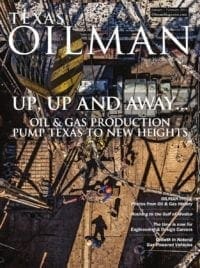A common saying in the South is “Don’t kill the goose that laid the golden egg”. In Louisiana’s business environment, this golden goose is Louisiana’s oil and gas industry. The industry contributes in severance taxes, royalties and bonuses between 15-17% of the states general fund revenue and contributes 19 billion dollars in annual impact to the state’s economy. These dollar amounts do not even account for the tens of thousands of direct and indirect jobs that come from the oil and gas industry.
This week, the South Louisiana drilling rig activity reached an all-time historic low with a mere 13 rigs running on land. Why is this rig count so low? With over $100 per barrel oil and a booming oil and gas industry around the rest of the United States, why? The president of a medium size independent company answered these questions by simply stating, “My investors don’t want to cross the Sabine River because of Louisiana’s legal climate”. His answer sounds very simple, but the situation is actually extremely complex. However complex the situation may be, a caustic legal climate is currently a reality in Louisiana.
Proponents of the lawsuits are often quoted as saying, “The oil companies will not leave Louisiana. As long as there is oil and gas in the ground, these companies will be here.” These statements are partially true in the fact that the companies will not leave completely, however, they will NOT REINVEST in our state. Eventually, oil and gas production will deplete, as will the billions in revenues and thousands of jobs for our state economy.
The year 2003 was the beginning of the “legacy lawsuits” feeding frenzy by a small group of trial lawyers. Fast-forwarding to today, more than 350 such lawsuits exist with around 2,000 defendants. Legacy lawsuits are lawsuits that can be filed or authorized by landowners, school boards, the Louisiana Attorney General, parish governments and levee boards to name but a few. These suits are against oil and gas companies for alleged land contamination during drilling activities that were performed decades ago. As a reminder, these drilling activities were legal according to the existing technology and regulations of that time period. In other words, these suits convey a message to the companies that states, “Drill here today and we will sue you 20 years from now for an alleged issue that requires little to no proof.”
According to the U.S. Chamber of Commerce, Louisiana is the 2nd most litigious state in the United States. So, when a company is contemplating where to invest in a drilling program or where they will get the best bang for their buck, the current legal climate in Louisiana is deterring future investments. You simply cannot sue thousands of companies and individuals with such frivolous lawsuits and NOT expect to have a drastic impact on the business climate.
Here are the facts: drilling activity in South Louisiana is facing an unprecedented decline and will continue to be in a decline until the state of Louisiana recognizes its severe need for legal reform. Without such positive reform, the Golden Goose will be killed.
Don Briggs is the President of the Louisiana Oil and Gas Association. The Louisiana Oil & Gas Association (known before 2006 as LIOGA) was organized in 1992 to represent the Independent and service sectors of the oil and gas industry in Louisiana; this representation includes exploration, production and oilfield services. Our primary goal is to provide our industry with a working environment that will enhance the industry. LOGA services its membership by creating incentives for Louisiana’s oil & gas industry, warding off tax increases, changing existing burdensome regulations, and educating the public and government of the importance of the oil and gas industry in the state of Louisiana.







